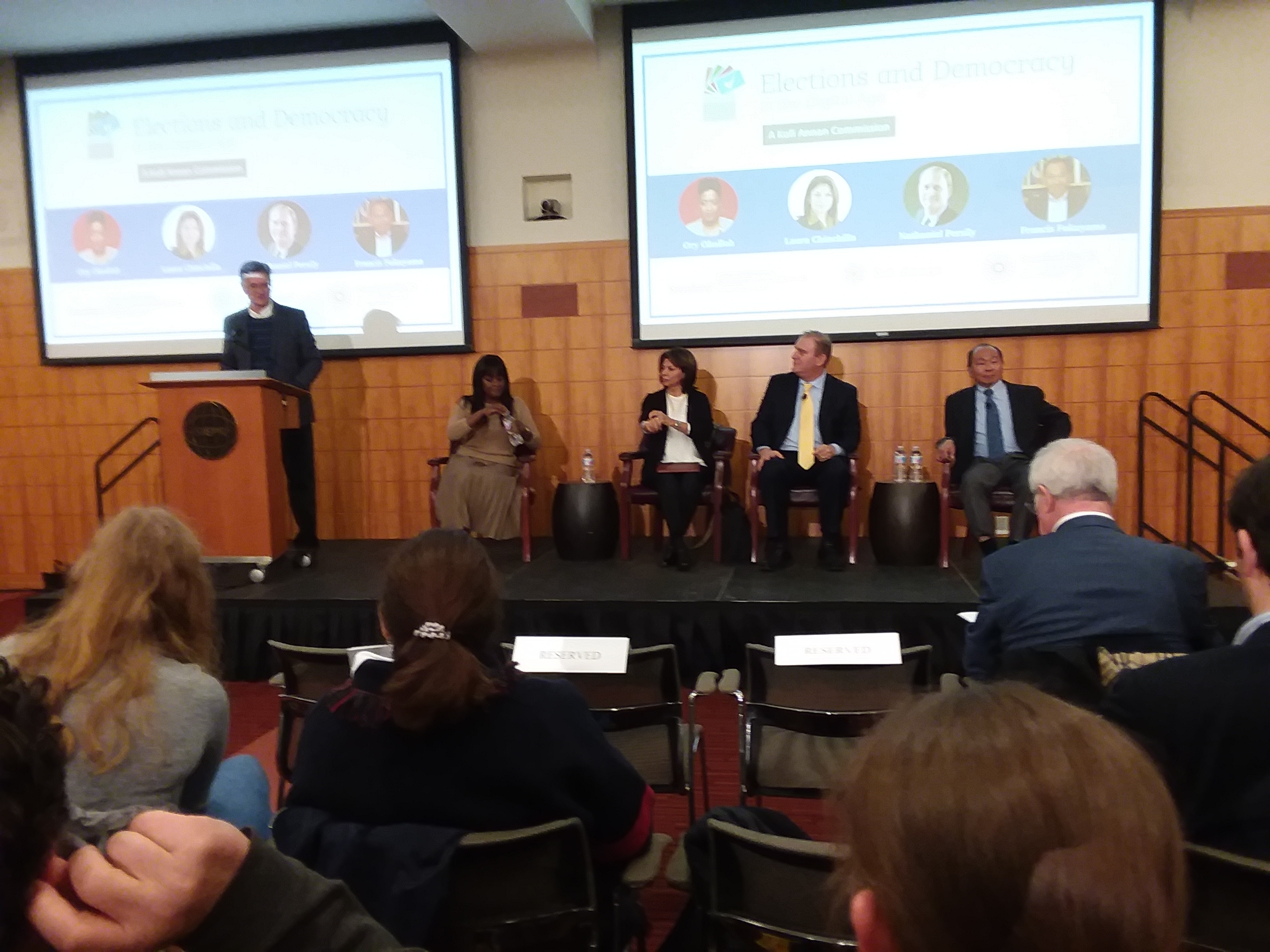On Wednesday evening, members of the Kofi Annan Commission on Elections and Democracy in the Digital Age gave a panel discussion on the opportunities and challenges technological innovations create for electoral integrity.
The panelists cited examples of political candidates leveraging social media to ascend polls and authoritarian leaders shutting down the Internet to squash nonconforming political views.
Hosted at the Gunn-Stanford Institute for Economic Policy Research (SIEPR) Building, the panel consisted of Commission chair and former Costa Rican president Laura Chinchilla, Omidyar Network director of investments Ory Okolloh and Stanford law professor Nathaniel Persily. Francis Fukuyama, director of the Center on Democracy, Development and the Rule of Law (CDDRL), moderated the discussion.
Chinchilla began the dialogue by discussing how technology played a crucial role in displacing military rule and installing democracy in Costa Rica.
“We in Latin America already have a good story in democracy,” Chinchilla said. “And part of that success has to do with the incorporation of technology into the electoral processes.”
She then described the variety of tools that Costa Rica has employed to increase the integrity of past elections. These tools range from biometric identification –– which includes registering the fingerprints of voters –– to accountability websites that publicize campaign finances in the hopes of ensuring voter trust in the electoral process.
“Those tools have been critical in avoiding fraud [in] elections which are very common in the beginning of the first years of a democracy,” she said.
Okolloh added that technology poses opportunities and challenges to young African democracies. He said authoritarian leaders have shut down the Internet in the past to suppress dissenting political views. Zimbabwe is one example, as they shut down all social media prior to a recent election and once more in wake of violent protests.
“I remember in the 2007 [Kenyan general] election, the focus was on shutting down TV stations,” Okolloh said. “Now, in the great indicator of the power of the Internet is how many African countries are shutting down the Internet three days before an election.”
“They fear the power of technology. They muzzle technology,” Okolloh added.
Okolloh also noted the benefits of technology in democratic elections, discussing how social media has led to larger rates of participation in national elections across several nations in Africa. She also mentioned that social media has encouraged a younger generation of political candidates to run for office.
However, while social media helps voters remain politically informed, according to Okolloh, whole populations remain susceptible to misinformation campaigns. She said that both domestic and foreign adversaries would likely be able to manipulate election results undetected.
“The bad guys are getting very sophisticated and the good guys are still falling behind,” Okolloh said.
In countries where political advertisements on television are heavily regulated, Persily added, social media propels candidates to the top of the polls.
“Leaders have ascended with the help of social media,” Persily said in reference to Donald Trump in the 2016 U.S. presidential election and Jair Bolsonaro in the 2018 Brazilian general election.
Okolloh added that social media messaging apps have allowed breaking news on current events to spread rapidly. She said her friends on WhatsApp notified her of a recent terror attack on Kenya faster than traditional news sources and Twitter.
In the subsequent question and answer session, audience member Brian Blau, who has worked with humanitarian organizations abroad for over 20 years, inquired about the need for censorship of fake news, arguing that in the free market of ideas, people are more likely to believe electoral commissions over the views of friends.
“I’m not quite certain why I’d believe my friends over these very powerful organizations,” Blau said.
Chinchilla responded that technology changes the power dynamic between the voting population and traditional news sources.
“When the traditional sources are no longer the credible sources, people only believe their families and friends,” Chinchilla said. “This issue has to do with cultural values and specific conditions of certain times.”
Contact Richard Coca at richcoca ‘at’ stanford.edu.
